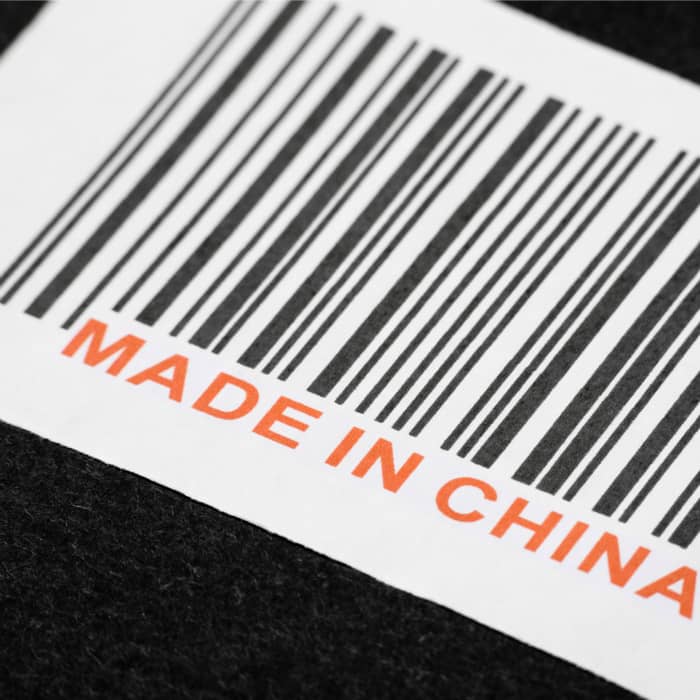 Escalating the ongoing global solar trade conflict, the European Commission has launched an investigation into imports of PV modules and related components from China. The commission's probe, announced Sept. 6, was initiated in response to a complaint filed in July by Germany-based SolarWorld and anonymous members of EU ProSun.
Escalating the ongoing global solar trade conflict, the European Commission has launched an investigation into imports of PV modules and related components from China. The commission's probe, announced Sept. 6, was initiated in response to a complaint filed in July by Germany-based SolarWorld and anonymous members of EU ProSun.
EU ProSun's petition showed ‘sufficient prima facie evidence to warrant the opening of an investigation,’ the commission wrote in its decision. In particular, the commission will look into possible dumping by Chinese solar equipment producers, ‘injury’ suffered by the European Union's (EU) solar manufacturing industry, and a potential connection between the dumped imports and the injury.
If all three conditions are met, the commission may impose duties, provided that such action is ‘not against the community interest,’ the commission adds on its website.
The start of Europe's investigation comes less than four months after the U.S. Department of Commerce (DOC) voted to impose anti-dumping tariffs and countervailing duties on Chinese modules, as part of its own investigation. The DOC's probe began last fall, when SolarWorld's U.S. subsidiary and its partners in the Coalition for American Solar Manufacturing (CASM) announced the filing of a complaint alleging illegal dumping by Chinese manufacturers.
Already, parallels between the EU case and the U.S. case have begun to appear. Chinese manufacturers vehemently deny any wrongdoing in Europe, and debate is building over whether the pro-investigation side or the anti-investigation side truly represents the majority of the EU's PV industry.
Trina Solar, which was hit with an anti-dumping tariff of 31.14% by the DOC in May, was among the leading Chinese manufacturers to immediately proclaim its innocence in Europe.
‘Trina Solar products are neither dumped nor subsidized,’ said Chairman and CEO Jifan Gao in a statement. ‘They are produced and sold competitively on the European market.’
Yingli Solar called the claims in EU ProSun's complaint ‘misleading’ and ‘unfounded,’ noting in a statement that the company has willingly disclosed its funding sources and cost structure. Suntech, which has seen its share of legal troubles in recent months, also immediately released a statement insisting that it plays by international trade rules.
‘Our industry's mission is to make solar affordable for everyone, and we are concerned that trade barriers will only delay the industry from fulfilling this,’ added Zhengrong Shi, Suntech's executive chairman and chief strategy officer, in the statement.
Several other companies and industry players echoed Shi's concerns. Although the CASM stated last month that tariffs in the U.S. have not impeded PV installation growth or resulted in job losses, the news of the EU's investigation provoked a new round of worries about the downstream effects of tariffs.
‘The solar industry's growth, which results in adding jobs and infrastructure investment, is correlated to the reduction in solar system costs, and this cost-reduction goal is undermined by SolarWorld's legal initiatives,’ said Jigar Shah, president of the Coalition for Affordable Solar Energy (CASE), in a statement.
SolarWorld, naturally, disagreed, issuing a statement that applauded the European Commission's decision. According to the company, its EU ProSun group seeks to promote ‘fair competition and the sustainable expansion of solar energy in Europe.’
Chinese manufacturers' practices have already led to the bankruptcies of more than 20 European solar companies this year, according to Milan Nitzchse, president of EU ProSun and head of marketing and communications at SolarWorld.
In a statement, Nitzchse explained that Chinese companies have operated at enormous losses, while avoiding bankruptcy due to heavy government subsidization. ‘If China destroys the EU industry, where labor accounts for less than 10 percent of production costs, then virtually all European manufacturing â�¦ jobs are under threat,’ he warned.
Next steps
SolarWorld remains the only public face of EU ProSun so far. However, the organization represents more than 20 European solar manufacturers whose combined production constitutes more than 25% of the EU's solar manufacturing output, per the European Commission. European companies opposing the trade complaint do not manufacture in greater volumes than do those in favor, the commission adds. These conditions were mandatory in order for the trade probe to open.
Both Suntech's Shi and the CASE's Shah, on the other hand, believe that SolarWorld and its unnamed co-filers may have more enemies than friends in Europe.
‘Just as in the trade case, when the U.S. solar industry rallied in opposition to SolarWorld's actions, the majority of EU-based solar companies oppose the imposition of harmful taxes,’ Shah said in a statement, criticizing the trade complaint as ‘self-serving.’
Government figures in both Germany and China have expressed their hopes of seeing trade tensions resolved through talks, rather than tariffs.
Following a meeting between German Chancellor Angela Merkel and Chinese Premier Wen Jiabao, during which Merkel reportedly urged negotiations between China and Western nations, Shen Danyang, a spokesperson for China's Ministry of Commerce, released a statement requesting ‘dialogue and consultations.’
The European Commission investigation will nonetheless forge ahead, with a series of questionnaires scheduled to be sent soon to exporters, importers, European manufacturers and other companies. Like the surveys distributed as part of the DOC probe in the U.S., these questionnaires will seek data on production totals, sales figures and other metrics.Â
Based on examination of the information collected, the commission will rule one of the following three ways, according to its website: It will impose provisional anti-dumping duties (likely for six months), continue the investigation or close the investigation.
The announcement of provisional findings will be made no later than June 6, 2013.

